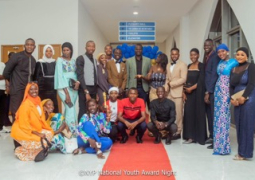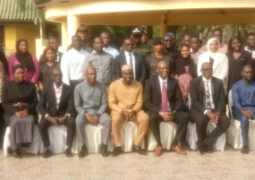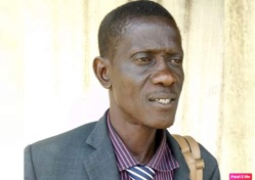
Dr. Gephart is an environmental scientist focused on the role of global seafood trade in sustainable and resilient food systems. Her research falls into three main areas: the environmental impact of seafood production and the role of trade in driving these impacts; risks and resilience of seafood trade to environmental variability, and feedback between food systems and the environment. Through this research, she brings together diverse trade, fisheries, nutrition, and environmental data sources and often collaborates with interdisciplinary teams.
She told our reporter that her visit to The Gambia was part of the U.S. State Department and U.S. Science Envoy Programme – a science diplomacy programme focused on building relationships and scientific exchange between countries.
Dr Gephart declared The Gambia as a particular interest in fishing and was excited because of the nutritional importance of fish, especially within the region. She emphasised that there is a threat to Sardine fishery stock from overfishing, climate change and the pressures from fishmeal industries.
Dwelling on the scope of the fishing industry in the country, Dr. Gephart stated that this was her first time in The Gambia. However, she noted it was so hopeful to hear from different groups in the country about their experiences on the ground.
She observed that from the international data and high-level overview, it's so hopeful to hear from both people within the government, and CSOs about how the fisheries industry declined affecting the local people.
“They echoed a lot of these concerns around the lack of availability of fish and rising prices especially for Sardine, making some of these fishes so important from a nutritionist standpoint,” she stated while underscoring the overall food security challenges of the country.
She said fish makes up a significant portion of the diet looking at the share of the proteinaceous mixed up. She added that the nutritional importance of a fish goes far beyond that, while noting that protein is a critical source of micronutrients like calcium, and important source of folic acid which is important for brain health, especially for pregnant women and children.
Speaking on the importance of partnership to cope with challenges faced by Gambians in the fishing sector, she reiterated that regional cooperation on fisheries management is so important, especially in an area like The Gambia where the coastguards would take a patrol of those borders. She pointed out that fish knows no borders as they keep moving across these country areas and that represents one fishery stock that needs to be managed across the region.
She added that regional cooperation on single catch is very important, indicating that at the international level, she thinks they should be thinking about what policies need to be put in place to address this flow of important nutrients out of the region related to fishmeal production.
“We should also think about what this fund access agreement consists of; because if you look at the fishery resources available, they are so valuable from a food security standpoint. What is more important is that people are getting that for value out. That doesn't necessarily mean that there should be no fund access agreement but it's important to make sure what the countries get in, reflect the nutritional values that's being given.”





